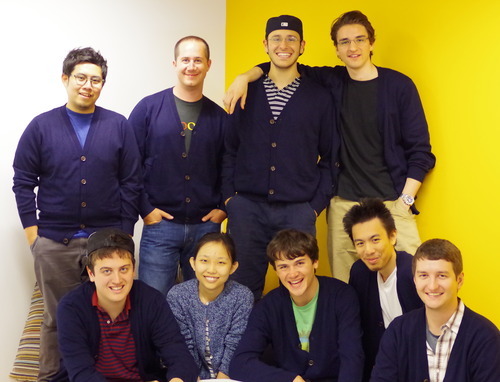CommonPlace just hired two engineers in very quick succession using Whitetruffle. The story of CommonPlace is at once remarkable and typical of the creativity, passion, and drive that builds a tech startup.
This post is the beginning of a series following CommonPlace as they face the challenges of building a new product with their new team.
CommonPlace is a web platform for local community engagement. Max Novendstern, the company’s founder, was in a sociology class at Harvard reading “Bowling Alone,” a book by Robert Putnam that argues:
“Television, two-career families, suburban sprawl, generational changes in values–these and other changes in American society have meant that fewer and fewer of us find that the League of Women Voters, or the United Way, or the Shriners, or the monthly bridge club, or even a Sunday picnic with friends fits the way we have come to live. Our growing social-capital deficit threatens educational performance, safe neighborhoods, equitable tax collection, democratic responsiveness, everyday honesty, and even our health and happiness.”
Max wanted to fix this – to create something using tools like online social networking and lots of data to help make it easy to connect in meaningful ways with the people in your local community. So he hacked a text entry field in Rails, started a non-profit organization, and began looking for advice on how to make his idea a reality. He soon realized that if he wanted to raise money and hire people quickly, he would have to switch from non-profit to tech startup.
Tech startups were something he knew very little about. He initially wanted to be a non-profit, but learned that “businesses are just powerful ways of getting stuff done.” While he knew this was the right direction to take, Max had to actively search for the resources he needed. Before he knew it he was balancing building the product, active fundraising, and a full schedule at Harvard. CommonPlace was launched in 10 cities while Max was still in school.
When asked how a college student with no business experience was able to convince two engineers to leave their jobs and join his venture, he said he felt it was best to speak to their ambition. He knew he couldn’t compete in compensation or benefits – but he could promise that they would be tackling a big, challenging problem. If they succeeded, it would mean helping many people and getting a lot of public recognition for it.
According to Max, selling your vision to potential team members means “creating a vocabulary where you can be the winner.”